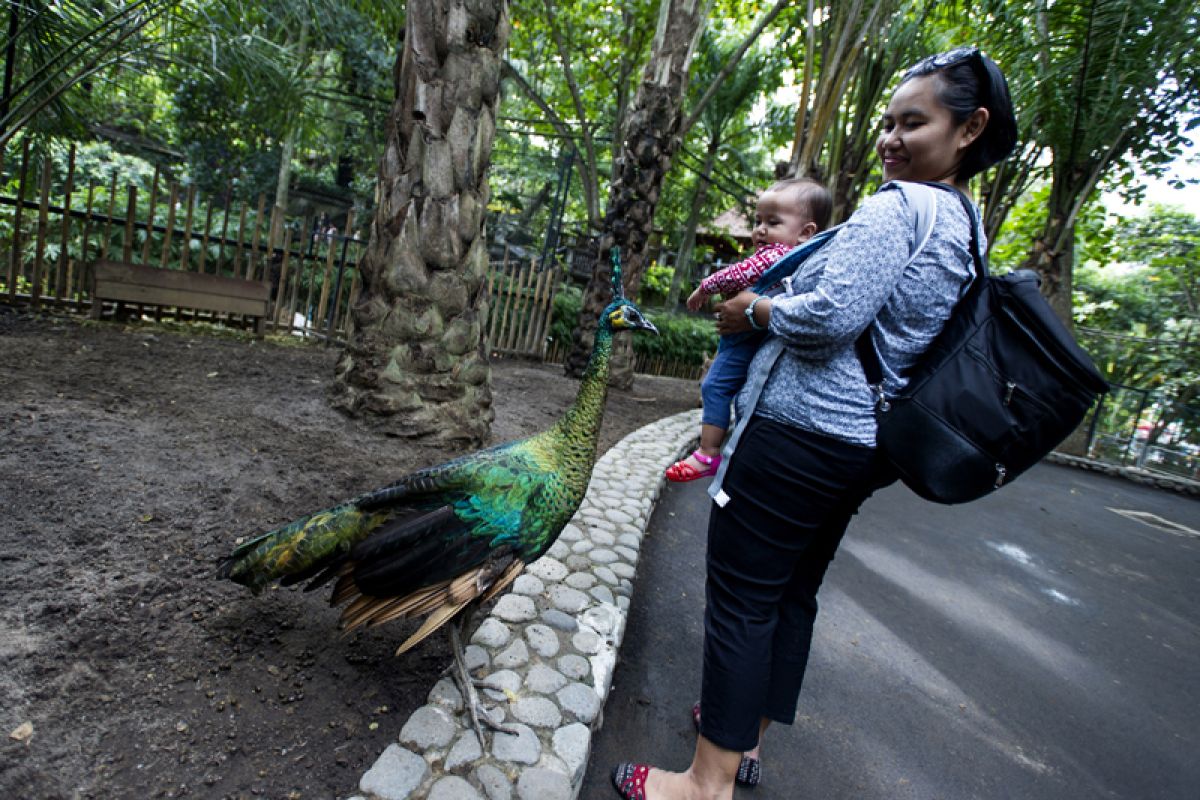The participation included offering free admission tickets to veterans, along with special visitors whose birthdays are on August 17.
The offer of free admission tickets is as a promotion, valid from August 17 to 19, to provide opportunities for veterans of the freedom fighters, and special visitors, to visit Bali Zoo.
Bali Zoo Public Relations Chief Emma Kristiana Chandra remarked in Gianyar, Bali, on Saturday that the veterans and special visitors whose birthdays are on August 17 only need to show their identity cards at the zoo`s entrance, to take advantage of the free admission.
Such a promotion is also expected to boost local and foreign tourist visits to Bali Zoo, located in Singapadu Village of Gianyar District.
On average, domestic and foreign tourist visits to the zoo reach some 1,000 people per day on weekdays. During the weekend holidays, attendance can reach 1,500 people.
Even during the long religious holidays and school holidays, the number of visitors can reach two to three times that of weekends.
Bali Zoo has some 500 rare and protected animal collections on display, including 80 endemic species from Indonesia, Africa and Asia.
Among the number of sites that visitors can enjoy at Bali Zoo is "Kampung Sumatra", which features unique species found on the Sumatran islands, such as Sumatran elephants and Sumatran tigers (Panthera tigris sumatrae).
Bali Zoo is currently hosting two Sumatran tigers, which are expected to attract many visitors during the Independence Day holidays.
The Sumatran tigers, male and female, were provided to Bali Zoo by the Kinantan Wildlife Cultural Park of Bukittinggi (TMSBK) in West Sumatra, last year.
According to the Bukittinggi Tourism, Youth and Sports Agency Chief, Erwin, the delivery of Sumatran tigers to Bali Zoo was part of a cooperation agreement between TMSBK and the zoo, as part of a bid to improve conservation efforts of Sumatran tigers.
Erwin explained that the process for extending the wildlife grant to Bali Zoo took one year before a license was issued.
He noted that there were many licenses to be obtained, ranging from the Natural Resource Conservation Center, the local governor, and the Ministry of Environment and Forestry, along with those required when the tigers were shipped to Bali.
The two Sumatran tigers were transported to Bali Zoo by road and escorted by three forest policemen, West Sumatra Police, as well as a veterinarian.
With the two protected tigers, the Sumatran tiger collection at the TMSBK has dropped from 12 to 10 animals.
Under the cooperation agreement with Bali Zoo, the two sumatran tigers were expected to adapt to their new environment and become a means of education for children and visitors to the zoo.
The Sumatran tiger is one of the last remaining tiger species in Indonesia, after the Balinese and Javanese tiger species were declared extinct. Now, however, the Sumatran tiger remains under threat, because its habitat has shrunk and it is being hunted for trading.
Also, poaching of Sumatran tigers on the island of Sumatra for trading remains rampant, following the apprehension of a man in possession of a Sumatran tiger fur in Jambi in October 2017.
Jambi Police and local Natural Resources Conservation Agency (BKSDA) officials, working in Berbak National Park, apprehended Marsum, age 45, a resident of Tanjab Timur District, and seized a tiger skin and tiger bones from him, according to Jambi Police spokesman Senior Commissioner Ahmad Haydar.
Haydar remarked that Marsum admitted to having hunted the Sumatran tiger by using a 900-meter electric wire to capture the protected animal.
The tiger captured by Marsum was a female tiger that was about two years old. The perpetrator admitted that he would attempt to sell the tiger fur for Rp105 million. However, he was apprehended before he could sell the fur.
Rampant poaching, coupled with the opening of massive plantation areas and forest fires, has led to the continued drop in the number of protected Sumatran tigers.
Indonesia, according to ProFauna, is rich in biodiversity, with more than 300,000 wildlife species, or 17 percent of those worldwide.
Further, the country has become the habitat for endemic wildlife, and most of these are found no where else in the world.
According to the International Union for Conservation of Nature and Natural Resources (IUCN), there are 259 endemic mammals, 282 endemic birds, and 172 endemic amphibians found in Indonesia.
Despite the country being rich in biodiversity, Indonesia is also notorious for its long list of threatened wildlife, and the threatened, which included 184 mammals, 119 birds, 32 reptiles, 32 amphibians, and 140 fish in 2011.
There are also 68 species which are critically endangered, along with 69 endangered species and 517 vulnerable species. These wildlife will eventually become extinct if there is no action is taken to save them from extinction, especially the Sumatran tiger.
Editing by Yoseph Hariyadi
(T.O001/A/KR-BSR/A/H-YH) 18-08-2018 13:01:05
Reporter: Otniel Tamindael
Editor: Andi Abdussalam
Copyright © ANTARA 2018












